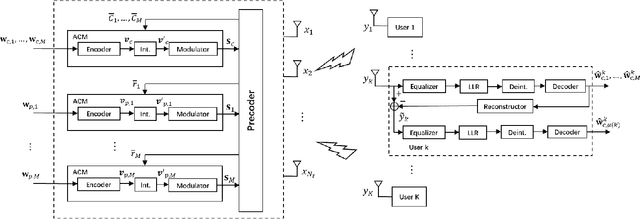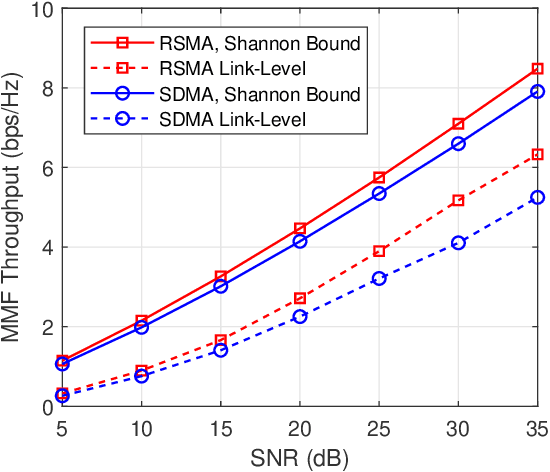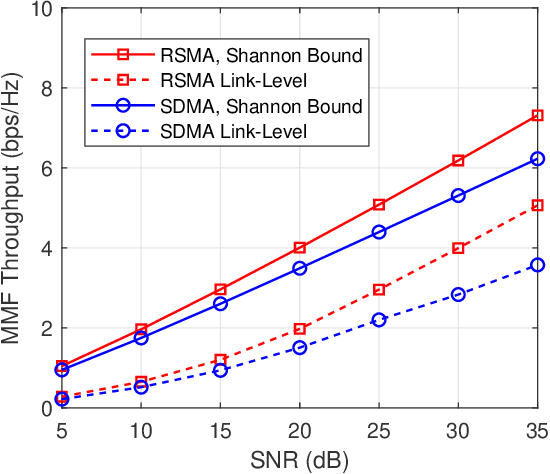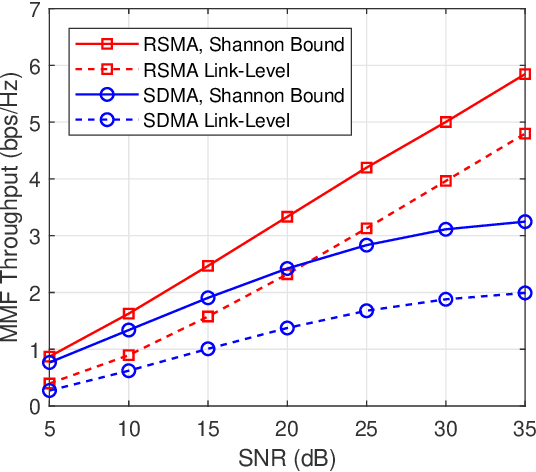Rate-Splitting Multiple Access for Multigroup Multicast Cellular and Satellite Communications: PHY Layer Design and Link-Level Simulations
Paper and Code
Apr 01, 2021



Rate-splitting multiple access (RSMA), relying on linearly precoded rate-splitting (RS) at the transmitter and successive interference cancellation (SIC) at the receivers has emerged as a powerful and flexible multiple access strategy for downlink multi-user multi-antenna systems. Through message splitting and the transmission of both common and private messages, RSMA has been demonstrated to be a robust interference management strategy which enables partially decoding interference and partially treating interference as noise. In this work, we consider the application of RSMA in a multigroup multicast scenario, where each message is intended to a group of users. By leveraging the recent results on the max-min fair (MMF) optimization problem of RSMA-based multigroup multicast beamforming with imperfect channel state information at the transmitter (CSIT), we investigate the design of the physical (PHY) layer including finite length polar coding, finite alphabet modulation, adaptive modulation and coding (AMC) algorithm, and SIC receivers, etc. Link-level simulation (LLS) results verify the superiority of RSMA-based multigroup multicast transmission compared with space-division multiple access (SDMA)-based strategy in both cellular systems and multibeam satellite systems.
 Add to Chrome
Add to Chrome Add to Firefox
Add to Firefox Add to Edge
Add to Edge